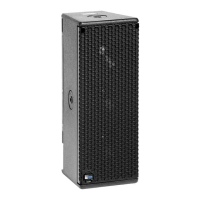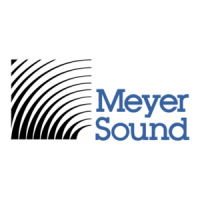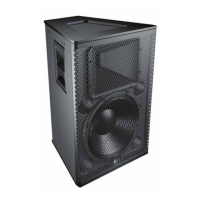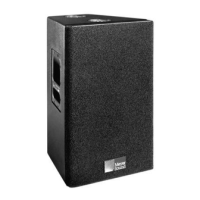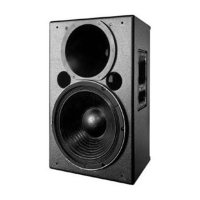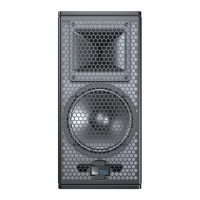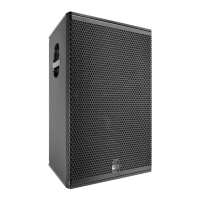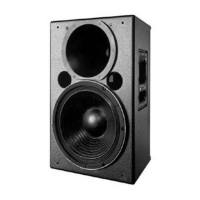19
CHAPTER 6
The UPM-1P and UPM-2P can utilize components from
Meyer Sound’s QuickFly system — a range of rugged,
reliable and deceptively simple rigging and mounting
components. QuickFly facilitates placing loudspeakers in
single units, hanging or attached to a surface, for a variety
of applications.
CAUTION: All Meyer Sound products
must be used in accordance with local,
state, federal and industry regulations. It is the
owner’s and/or user’s responsibility to evaluate the
reliability of any rigging method for their application.
Rigging should be carried out only by experienced
professionals.
CAUTION: Always use properly rated rigging
hardware.
CAUTION: It is important to inspect rigging
hardware regularly and replace worn or
damaged components immediately.
Each loudspeaker includes three rigging plates, situated
on the top, bottom and on one side of the cabinet. There
are two types of interchangeable rigging hardware, each
fastened by three Phillips screws:
■ 3/8"-16 nut plates
■ M10 x 1.5 metric nut plates
CAUTION: Units are rated for the weight of
one cabinet only.
STAND-MOUNTING THE UPM-1P AND UPM-2P
LOUDSPEAKERS
You can mount the UPM-1P or UPM-2P loudspeaker on a
stand using the MSA-UPM stand adapter (Figure 6.1) along
with a third party loudspeaker stand such as those made
by Ultimate Support Systems (www.ultimatesupport.com).
The MSA-UPM kit includes 3/8"-16 and M10 hardware. To
secure the adapter, attach the adhesive-backed cork washer
onto the stand and secure the stand to the loudspeaker
using the bolt and washer, as shown in figure 6.1.
Figure 6.1. MSA-UPM Stand Adapter
MYA-UPM MOUNTING YOKE ASSEMBLY
This cradle-style mounting yoke (Figure 6.2) suspends a
single UPM-1P or UPM-2P loudspeaker and allows a wide
range of horizontal and vertical adjustment. The yoke
attaches to the top and bottom nut plates. The mounting
yoke kit includes 3/8"-16 and M10 hardware.
Figure 6.2. The MYA-UPM is used to suspend a single UPM-1P or
UPM-2P cabinet
CAUTION: To secure the loudspeaker to the
yoke, tighten the bottom bolt first and then
the top. Do not overtorque the top and bottom bolts,
as this may damage the cabinet.
A hanging clamp (“C” or “G” type) and a steel safety cable
are required to enable the yoke to be used (not supplied as
a part of the yoke assembly kit).
CHAPTER 6: QUICKFLY RIGGING

